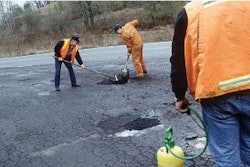The Federal Highway Administration (FHWA) began accepting proposals by California and Vermont to explore innovative ways of using federal funds to cover certain indirect costs of managing highway projects, Federal Highway Administrator Victor Mendez announced on March 2.
The announcement is in keeping with the Federal Highway Administration’s “Every Day Counts” initiative, designed to shorten the time for highway project delivery, enhance roadway safety and protect the environment, the agency says.
“In todays climate of tight budgets, it is essential that we do everything we can to help states get the most out of their transportation dollars to deliver safe and reliable roads and bridges for all communities,” said U.S. Transportation Secretary Ray LaHood in a written statement. “We look forward to seeing the results of these alternative methods, in hopes of helping states make the most of their federal funding.”
FHWA’s approvals are the latest in an ongoing testing and evaluation program designed to encourage states to find alternatives, or improvements, to conventional highway grant funding strategies. By sharing successful approaches that some states have taken, the program will help all state departments of transportation pursue new financial flexibilities.
When Tropical Storm Irene devastated parts of Vermont last August, it required numerous unplanned road and bridge repair projects and that added new costs to the Vermont Agency of Transportation’s (VTrans) ongoing administrative budget. Typically, states are required to develop a complex “indirect cost allocation plan” (ICAP) to use federal funds for overhead costs, but in this case, the FHWA approved an application by VTrans to use federal funding for costs associated with administration and oversight of federally funded emergency relief projects. With this approval, VTrans can begin billing FHWA for these additional administrative costs sooner.
FHWA also negotiated an agreement with the California Department of Transportation (Caltrans) to eliminate the ICAP needed to use federal funding over the next three years for nine engineer positions dedicated to overseeing local public agency (LPA)-managed highway projects. LPAs deliver a significant percent of California’s federal-aid highway program, and ensuring proper oversight of such projects is a FHWA priority.
If successful, these strategies could serve as a template for other states seeking to use federal funding for certain indirect costs without developing an ICAP, as well as to shorten highway project delivery and improve the safety of the traveling public.
“Adding flexibility for states’ use of federal funds to meet local needs is key to helping them deliver projects more quickly,” said Mendez in the written statement. “Innovations like these should become standard practice, and I encourage all states to help us find new ways of making every day count.”
State departments of transportation typically receive federal funds for the direct costs of highway projects, such as construction, materials and labor. Since 1998, states have had the option to use federal funds for overhead costs, provided they develop an ICAP. Without such a rate structure in place, indirect costs – such as those related to overseeing emergency relief contracts and reviews to ensure that LPAs comply with federal regulations – have not been eligible for federal funding.
For more information on FHWA’s “Every Day Counts” initiative, go to https://www.fhwa.dot.gov/innovation/everydaycounts/.










